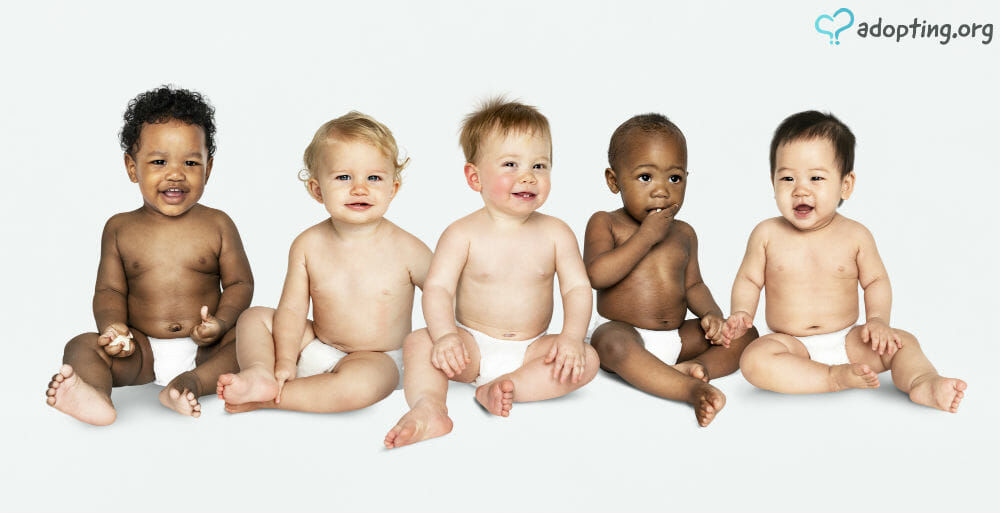
Making the decision to adopt a baby is both an exciting and terrifying decision. Just the finality of deciding that it is definitely going to happen, that you are definitely going to adopt a baby, will change your life tremendously. It is at this point that the research process begins and your focus shifts to the next steps. While it is easy and tempting to do internet search after internet search, it is certainly helpful to know where to start. The process to adopt a baby has sequential steps that will help you navigate the process with a little more ease. Knowing these steps will help you understand what is next and what has to be accomplished before you can bring your baby home.
Infant adoption is often referred to as domestic adoption. While it is possible to adopt a baby from foster care or internationally, it is much less likely. If you want to adopt a baby, the best route to choose is often domestic infant adoption. For this type of adoption, you will self-match or have the help of an adoption agency or attorney to match with an expectant mother. This expectant mother has made the decision to place her baby for adoption and will often be the one who chooses you to parent her child. In some states, you may also be able to advertise that you are hoping to adopt a baby on social media as well as other avenues such as the Parent Profiles at Adoption.com. It is important to find out if it is legal in your state to advertise your adoption.
After you have found an adoption agency or adoption attorney to lead you through the infant adoption process, you will first need to become eligible to adopt. This eligibility begins with the home study process. For part of this process, everyone in your household over the age of 18 will need to obtain an FBI fingerprint background check. In some states, agencies or attorneys may be required to search the juvenile record of any child over a certain age in your household but still under the age of 18.
There are some crimes that will disqualify a person from adopting, including but not limited to, sex crimes, drug crimes, crimes against protected people groups such as children, disabled, or handicapped individuals, or domestic violence offenses. If someone in your household does have a criminal record, it is vital to be upfront with your adoption agency or attorney in order to determine your qualifications to adopt a baby.
The next part of the home study process will be in-person interviews and the collection of important documentation. For this process, a licensed adoption professional will come into your home to interview you and your family about the adoption and about your history. This may be done in multiple visits. Each household member will be interviewed.
[dfp_ads id=46]The adoption professional will likely ask questions about why you have chosen to adopt, how you were raised, how you plan to raise your child, and any past involvement with child protective services, including any involvement you had as a child if applicable. The purpose of these interviews is really to make sure that you are prepared for the trials that might come with adoption and have all of your questions answered.The adoption professional will also do a safety audit of your home during one of these visits. The audit is typically to ensure that there are no glaring issues with your home that would affect the child’s safety or feeling of security. They will make sure that there is a plan for a room for the child, a bed, and preparations to bring a child into your home. They will also check for safety issues such as gun and ammo storage, emergency escape plans, medicine storage, smoke detectors, etc.
Many of these safety issues are common sense, however, there may be some aspects you would not think about, such as the expiration date and inspection of your fire extinguisher or craft supplies you typically have left out. You can typically ask your adoption agency for a list of what they will check for beforehand. Most agencies will be more than happy to prepare you for what needs to be checked before they conduct the audit.
Once a home study has been completed and you are legally eligible to adopt a child, you will either self-match with a birth mother or wait to be matched. Once you have matched, you may be required to pay pregnancy-related expenses to the birth mother during her pregnancy and sometimes for a postpartum period. The expenses you pay can vary from state to state, with some states capping the expenses at a certain amount. Once the birth mother has given birth, there will be a period of waiting for her to be able to consent to the adoption. As with most adoption processes, this length of time will vary by state.
Once the consent is signed, it is irrevocable in some states while not in others for a certain amount of time. In states where the consent is not immediately irrevocable, the birth mother can revoke her consent within a certain length of time, and the child must be returned to her immediately. Once finalization has occurred, your baby is legally and forever yours, just as if they had been naturally birthed into your family. In some states, you do not have to attend a court hearing for finalization, while in some states you will need to go before a judge in order to finalize the adoption. This finalization hearing is usually more of a formality and celebratory ceremony unless there are any issues that might affect finalization. However, your adoption attorney or adoption agency will likely be notified and have addressed these issues before the actual finalization hearing.



